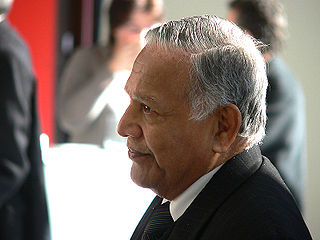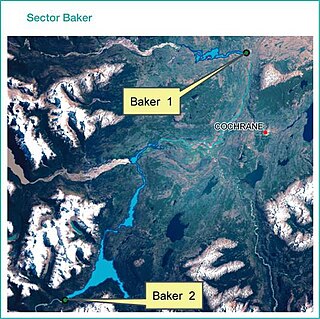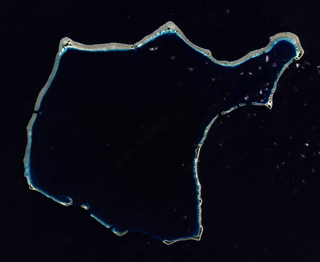
Robert Francis Kennedy Jr. is an American environmental lawyer and activist, author, and anti-vaccinationist. Kennedy is a son of Robert F. Kennedy and nephew of former president John F. Kennedy. He is the president of the board of Waterkeeper Alliance, a non-profit environmental group that he helped found in 1999, and is the chairman of Children's Health Defense.

The Goldman Environmental Prize is a prize awarded annually to grassroots environmental activists, one from each of the world's six geographic regions: Africa, Asia, Europe, Islands and Island Nations, North America, and South and Central America. The award is given by the Goldman Environmental Foundation headquartered in San Francisco, California. It is also called the Green Nobel.

The Futaleufú River, located in northern Patagonia, is one of the premier whitewater rivers in the world. One of only two rivers to cross the 5,308 kilometer Chile-Argentina border, the Futaleufú headwaters can be found in the glacial snow melt of the UNESCO protected Los Alerces National Park in Argentina. The river gorge drops as low as 1,700 metres (5,600 ft) below the surrounding glaciated peaks. The name Futaleufú is an indigenous Mapuche word meaning "Big River.” Locals refer to the valley as "un paisaje pintado por Dios"—a landscape painted by God.

The Biobío River is the second largest river in Chile. It originates from Icalma and Galletué lakes in the Andes and flows 380 km to the Gulf of Arauco on the Pacific Ocean.
Juan Antonio Orrego Salas was a Chilean composer of contemporary classical music and musicologist.

The Gabčíkovo–Nagymaros Dams is a large barrage project on the Danube. It was initiated by the Budapest Treaty of 16 September 1977 between the Czechoslovak Socialist Republic and the People's Republic of Hungary. The project aimed at preventing catastrophic floods, improving river navigability and producing clean electricity.

Sri Lankabhimanya Christopher Gregory Weeramantry, AM was a Sri Lankan lawyer who was a Judge of the International Court of Justice (ICJ) from 1991 to 2000, serving as its vice-president from 1997 to 2000. Weeramantry was a judge of the Supreme Court of Sri Lanka from 1967 to 1972. He also served as an emeritus professor at Monash University and as the president of the International Association of Lawyers against Nuclear Arms.
Christine Jean is a French biologist and environmental activist. She was dubbed "Madame Loire" by the French press.
Fernando García is a Chilean composer. Active since 1956 he has done orchestral music, chamber music, etc. He studied with Juan Orrego-Salas and Gustavo Becerra-Schmidt, among others. His style is strongly influenced by serialism and aleatoric procedures. He also played a role in the beginnings of electroacoustic music in Chile, after a trip he made to France in the early 1950s where he heard musique concrete.

HidroAysén was a controversial megaproject that aimed to build five hydroelectric power plants in Chile's Aysén Region, two on the Baker River and three on the Pascua River. Planned for construction during the 2010s, the project was definitely cancelled by its contractors in November 2017.

Jeton Anjain was a Minister of Health and a senator of the Marshall Islands Parliament. He received the Goldman Environmental Prize in 1992, for his efforts to help people from the Rongelap Atoll, which was subject to nuclear contamination after the test of the Castle Bravo hydrogen bomb in 1954. In 1991, he and the Rongelap People were awarded the Right Livelihood Award for "for their steadfast struggle against United States nuclear policy in support of their right to live on an unpolluted Rongelap island."
Victor Tevah was a Chilean conductor of Jewish-Greek ancestry. In 1961, he acted as director to the Argentine Philharmonic ; from 1966–1979, he was director to the Casals Festival and Orchestra, Puerto Rico Symphony Orchestra and the Puerto Rico Conservatory; Tevah led Chile's Symphony Orchestra as director and conductor from 1947 until 1985.
Michal Kravčík is a Slovak hydrologist and environmentalist. He was awarded the Goldman Environmental Prize in 1999, for his contributions to the water management of the Torysa River.
Harrison Ngau Laing is a Malaysian environmentalist and politician, a member of the Kayan tribe. He was awarded the Goldman Environmental Prize in 1990 for his work to prevent deforestation of the Sarawak region. He was a member of the Malaysian Parliament from 1990 to 1995.
János Vargha is a Hungarian biologist, environmentalist and photographer. He organized opposition in particular against the projected Nagymaros dam in the Danube river system. He founded Duna Kör, an environmental movement.

Pablo Larraín Matte is a Chilean filmmaker. He has directed seven feature films and co-directed one television series, including the Academy Award-nominated films No (2012) and Jackie (2016). In 2017, Larraín and his brother Juan de Dios were the producers of Sebastián Lelio's A Fantastic Woman, which was the first Chilean film to win the Academy Award for Best Foreign Language Film.
Ruth Zenaida Buendía Mestoquiari is an Asháninka Peruvian activist and the first woman president of "Central Asháninka del Río Ene", an organization which aims to legally represent and legitimize the 18 indigenous communities of the Asháninka people around the Ene River and the 33 anexes around it. She was awarded the 2014 Goldman Environmental Prize for having led a campaign on behalf of the Asháninka people to oppose large-scale dams that would displace indigenous communities and endanger the environment.
Myint Zaw is a Burmese journalist and activist.
The National Prize for Musical Arts was created in Chile in 1992 under Law 19169 as one of the replacements of the National Prize of Art. It is granted "to the person who has distinguished himself by his achievements in the respective area of the arts". It is part of the National Prize of Chile.
Alberto Curamil is a Chilean indigenous leader from the Araucanía Region. He belongs to the indigenous group of Mapuche. He was awarded the Goldman Environmental Prize in 2019, for his efforts to protect the Cautín River from hydroelectric development projects.









